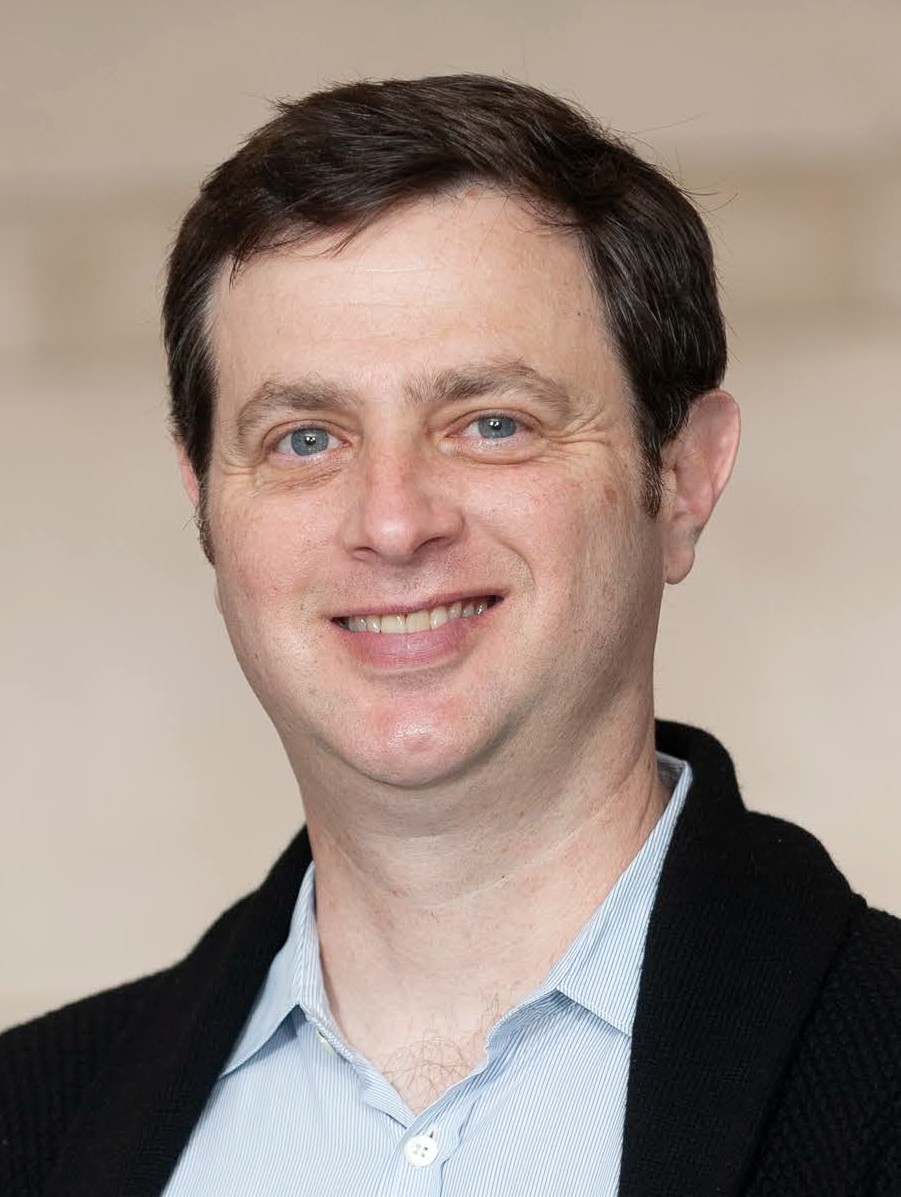RNA neoantigen vaccines prime long-lived CD8+ T cells in pancreatic cancer Journal Article
| Authors: | Sethna, Z.; Guasp, P.; Reiche, C.; Milighetti, M.; Ceglia, N.; Patterson, E.; Lihm, J.; Payne, G.; Lyudovyk, O.; Rojas, L. A.; Pang, N.; Ohmoto, A.; Amisaki, M.; Zebboudj, A.; Odgerel, Z.; Bruno, E. M.; Zhang, S. L.; Cheng, C.; Elhanati, Y.; Derhovanessian, E.; Manning, L.; Müller, F.; Rhee, I.; Yadav, M.; Merghoub, T.; Wolchok, J. D.; Basturk, O.; Gönen, M.; Epstein, A. S.; Momtaz, P.; Park, W.; Sugarman, R.; Varghese, A. M.; Won, E.; Desai, A.; Wei, A. C.; D’Angelica, M. I.; Kingham, T. P.; Soares, K. C.; Jarnagin, W. R.; Drebin, J.; O’Reilly, E. M.; Mellman, I.; Sahin, U.; Türeci, Ö; Greenbaum, B. D.; Balachandran, V. P. |
| Article Title: | RNA neoantigen vaccines prime long-lived CD8+ T cells in pancreatic cancer |
| Abstract: | A fundamental challenge for cancer vaccines is to generate long-lived functional T cells that are specific for tumour antigens. Here we find that mRNA–lipoplex vaccines against somatic mutation-derived neoantigens may solve this challenge in pancreatic ductal adenocarcinoma (PDAC), a lethal cancer with few mutations. At an extended 3.2-year median follow-up from a phase 1 trial of surgery, atezolizumab (PD-L1 inhibitory antibody), autogene cevumeran1 (individualized neoantigen vaccine with backbone-optimized uridine mRNA–lipoplex nanoparticles) and modified (m) FOLFIRINOX (chemotherapy) in patients with PDAC, we find that responders with vaccine-induced T cells (n = 8) have prolonged recurrence-free survival (RFS; median not reached) compared with non-responders without vaccine-induced T cells (n = 8; median RFS 13.4 months; P = 0.007). In responders, autogene cevumeran induces CD8+ T cell clones with an average estimated lifespan of 7.7 years (range 1.5 to roughly 100 years), with approximately 20% of clones having latent multi-decade lifespans that may outlive hosts. Eighty-six percent of clones per patient persist at substantial frequencies approximately 3 years post-vaccination, including clones with high avidity to PDAC neoepitopes. Using PhenoTrack, a novel computational strategy to trace single T cell phenotypes, we uncover that vaccine-induced clones are undetectable in pre-vaccination tissues, and assume a cytotoxic, tissue-resident memory-like T cell state up to three years post-vaccination with preserved neoantigen-specific effector function. Two responders recurred and evidenced fewer vaccine-induced T cells. Furthermore, recurrent PDACs were pruned of vaccine-targeted cancer clones. Thus, in PDAC, autogene cevumeran induces de novo CD8+ T cells with multiyear longevity, substantial magnitude and durable effector functions that may delay PDAC recurrence. Adjuvant mRNA–lipoplex neoantigen vaccines may thus solve a pivotal obstacle for cancer vaccination. © The Author(s) 2025. |
| Keywords: | controlled study; human tissue; disease-free survival; unclassified drug; gene mutation; human cell; clinical trial; fluorouracil; solid tumor; disease free survival; pancreas cancer; neoadjuvant therapy; pancreatic neoplasms; flow cytometry; follow up; follow-up studies; antineoplastic agent; polymerase chain reaction; cd3 antigen; cd8+ t lymphocyte; cd8-positive t-lymphocytes; quality control; phenotype; gene; gene expression; antineoplastic combined chemotherapy protocols; carcinoma, pancreatic ductal; gene frequency; transcription factor; cytotoxicity; tumor antigen; time factors; irinotecan; monoclonal antibody; rna; immunology; chemistry; immune response; amino acid sequence; antigens, neoplasm; gamma interferon; cancer vaccine; cancer vaccines; messenger rna; folinic acid; immunogenicity; pancreas tumor; cancer immunization; retrovirus vector; nanoparticles; nanoparticle; cytokine production; effector cell; upregulation; phase 1 clinical trial; cell clone; tumor; oxaliplatin; enzyme linked immunospot assay; half life time; ex vivo study; good clinical practice; leucovorin; clone cells; therapy; vaccine; peripheral blood mononuclear cell; lifespan; tumor necrosis factor; phylogeny; recurrence free survival; memory t lymphocyte; cell; phase 1 clinical trial (topic); single cell analysis; pancreatic ductal carcinoma; time factor; cd56 antigen; mathematical phenomena; density gradient centrifugation; antibodies, monoclonal, humanized; rna vaccine; cancer; humans; human; male; female; article; lipoplex; folfirinox; whole exome sequencing; gene set enrichment analysis; atezolizumab; ec50; receptor type tyrosine protein phosphatase c; draining lymph node; mrna vaccines; autogene cevumeran; folfirinox drug; klf2 gene; znf683 gene |
| Journal Title: | Nature |
| Volume: | 639 |
| Issue: | 8056 |
| ISSN: | 0028-0836 |
| Publisher: | Nature Publishing Group |
| Date Published: | 2025-05-27 |
| Start Page: | 1042 |
| End Page: | 1051 |
| Language: | English |
| DOI: | 10.1038/s41586-024-08508-4 |
| PUBMED: | 39972124 |
| PROVIDER: | scopus |
| PMCID: | PMC11946889 |
| DOI/URL: | |
| Notes: | Article -- MSK Cancer Center Support Grant (P30 CA008748) acknowledged in PubMed and PDF -- MSK corresponding author is Vinod Balachandran -- Source: Scopus |
Altmetric
Citation Impact
BMJ Impact Analytics
MSK Authors
-
 1041
1041Gonen -
 355
355Basturk -
 149
149Varghese -
 919
919Jarnagin -
 162
162Epstein -
 795
795D'Angelica -
 629
629Kingham -
 805
805O'Reilly -
 261
261Balachandran -
 41
41Won -
 55
55Momtaz -
 21
21Desai -
 6
6Pang -
 173
173Drebin -
 103
103Park -
 216
216Wei -
 25
25Ceglia -
 15
15Sethna -
 149
149Soares -
 17
17Sugarman -
 19
19Elhanati -
 64
64Greenbaum -
 10
10Lihm -
 6
6Odgerel -
 7
7Zebboudj -
 10
10Amisaki -
 3
3Bruno -
 5
5Lyudovyk -
 2
2Payne -
 10
10Ohmoto -
 2
2Reiche -
 1
1Zhang -
 1
1Cheng
Related MSK Work






